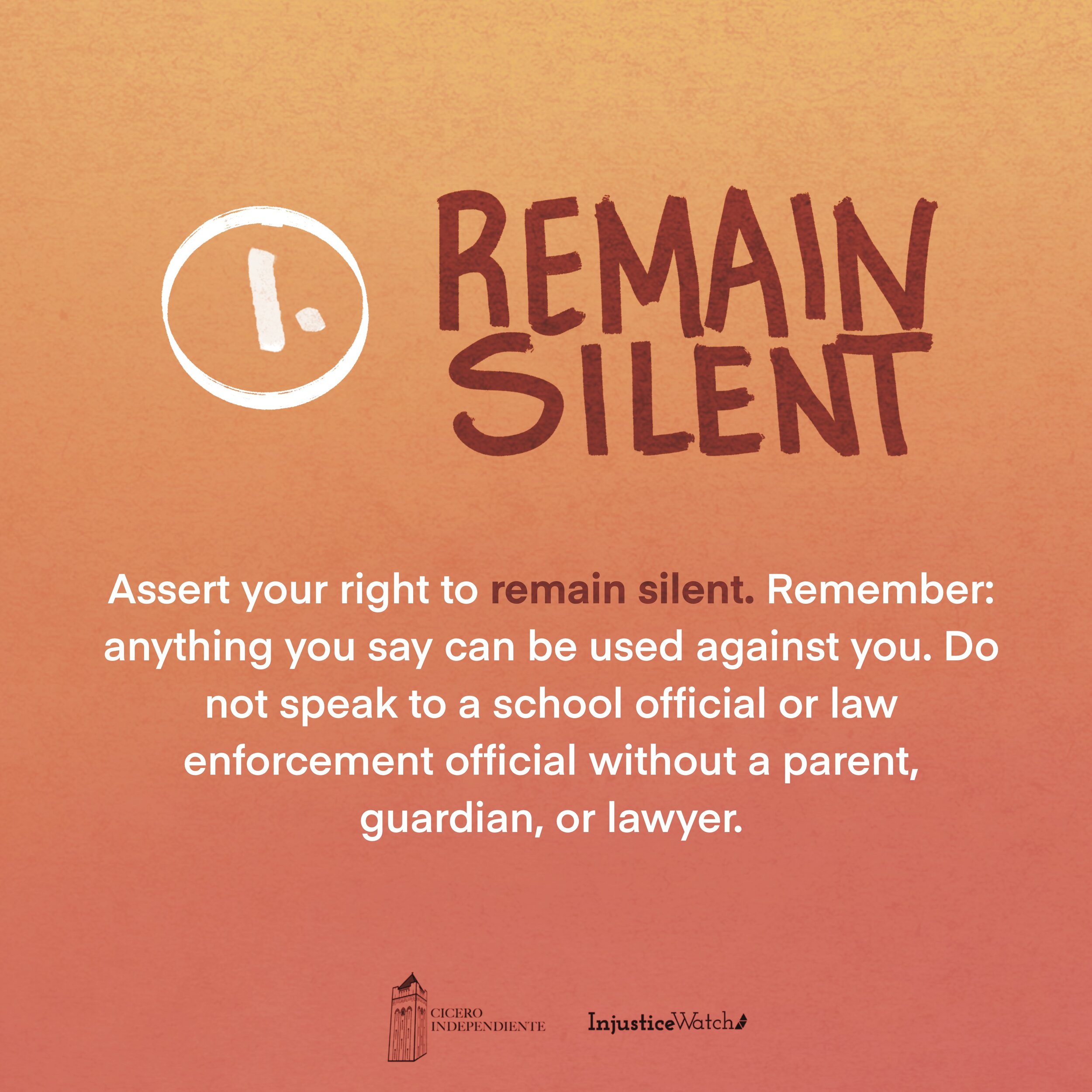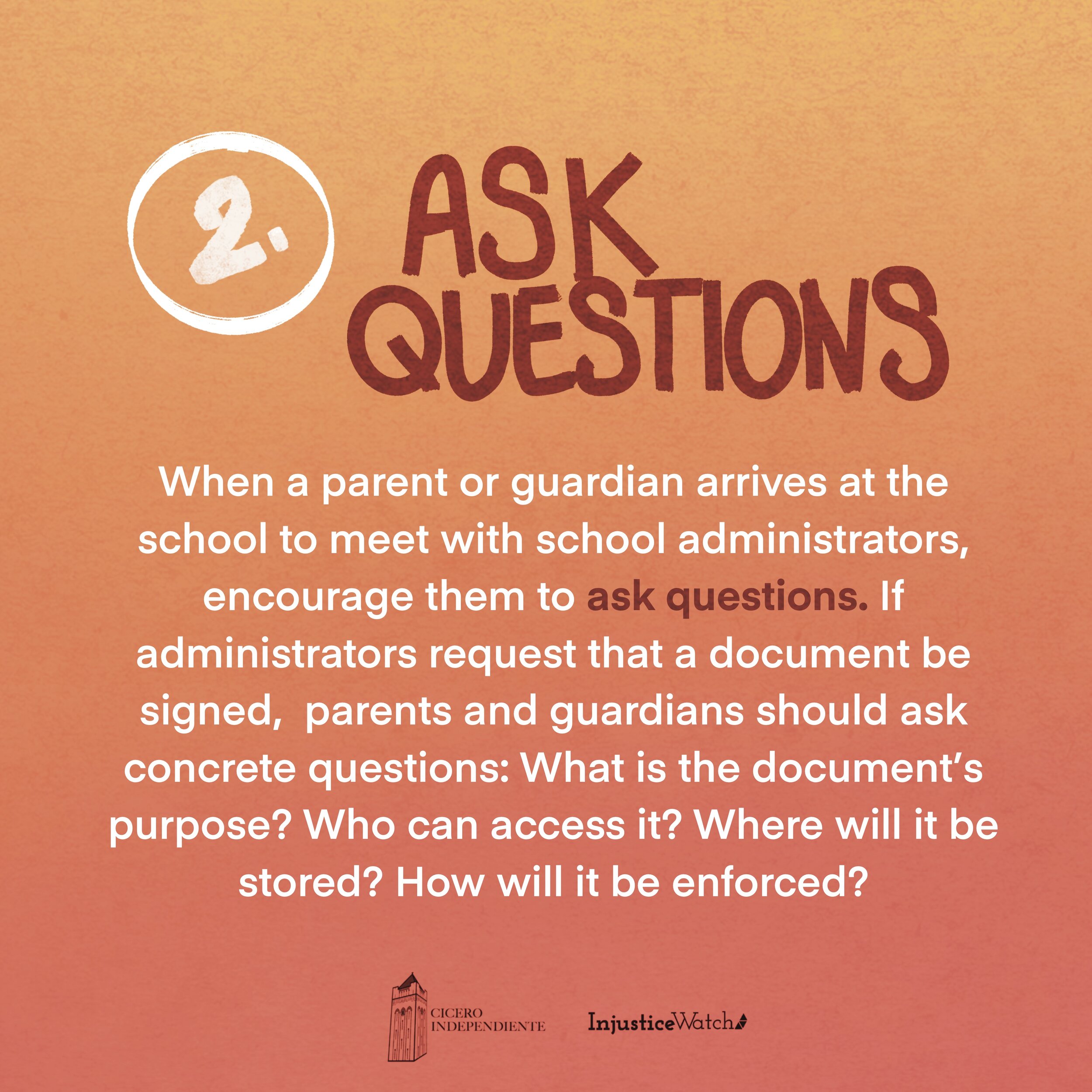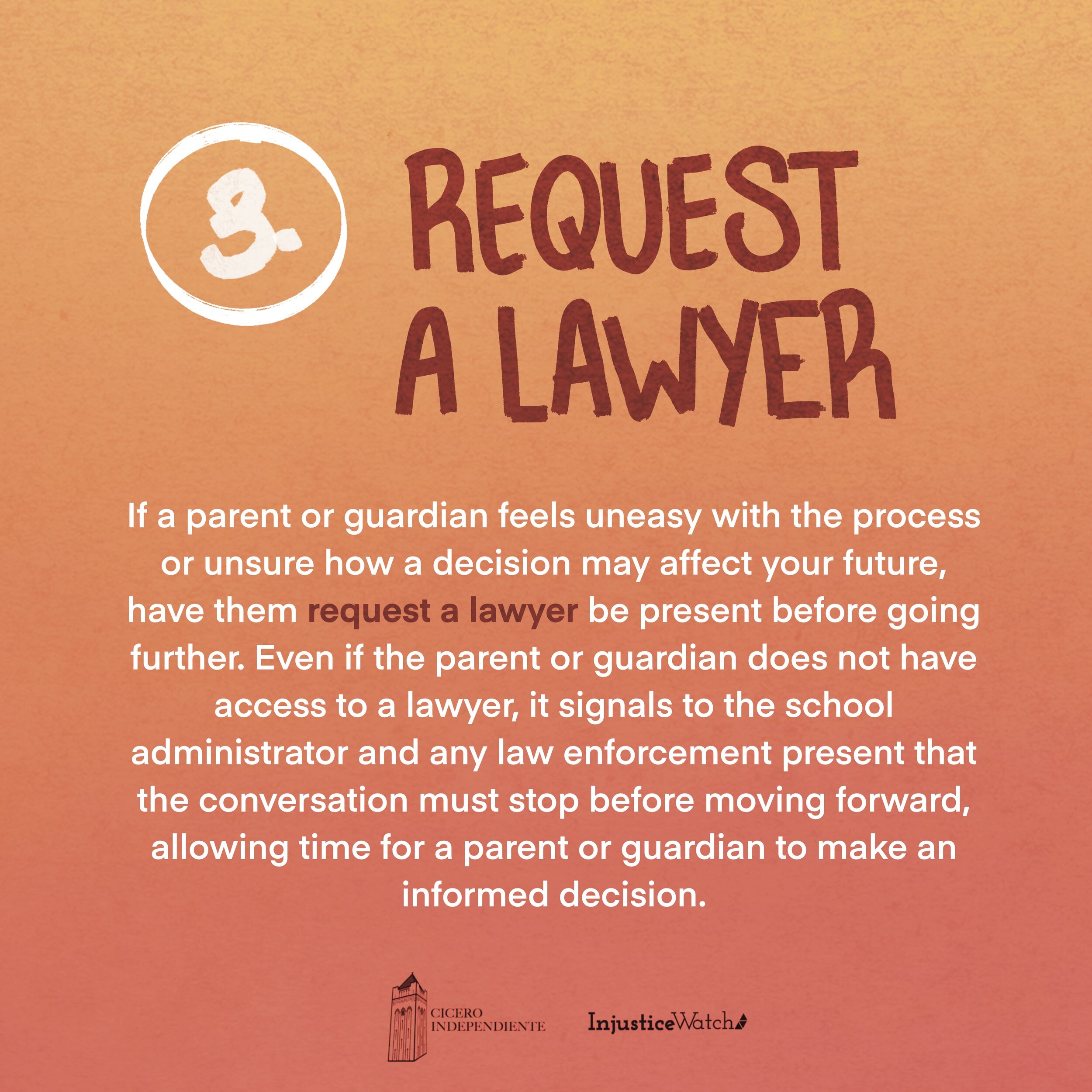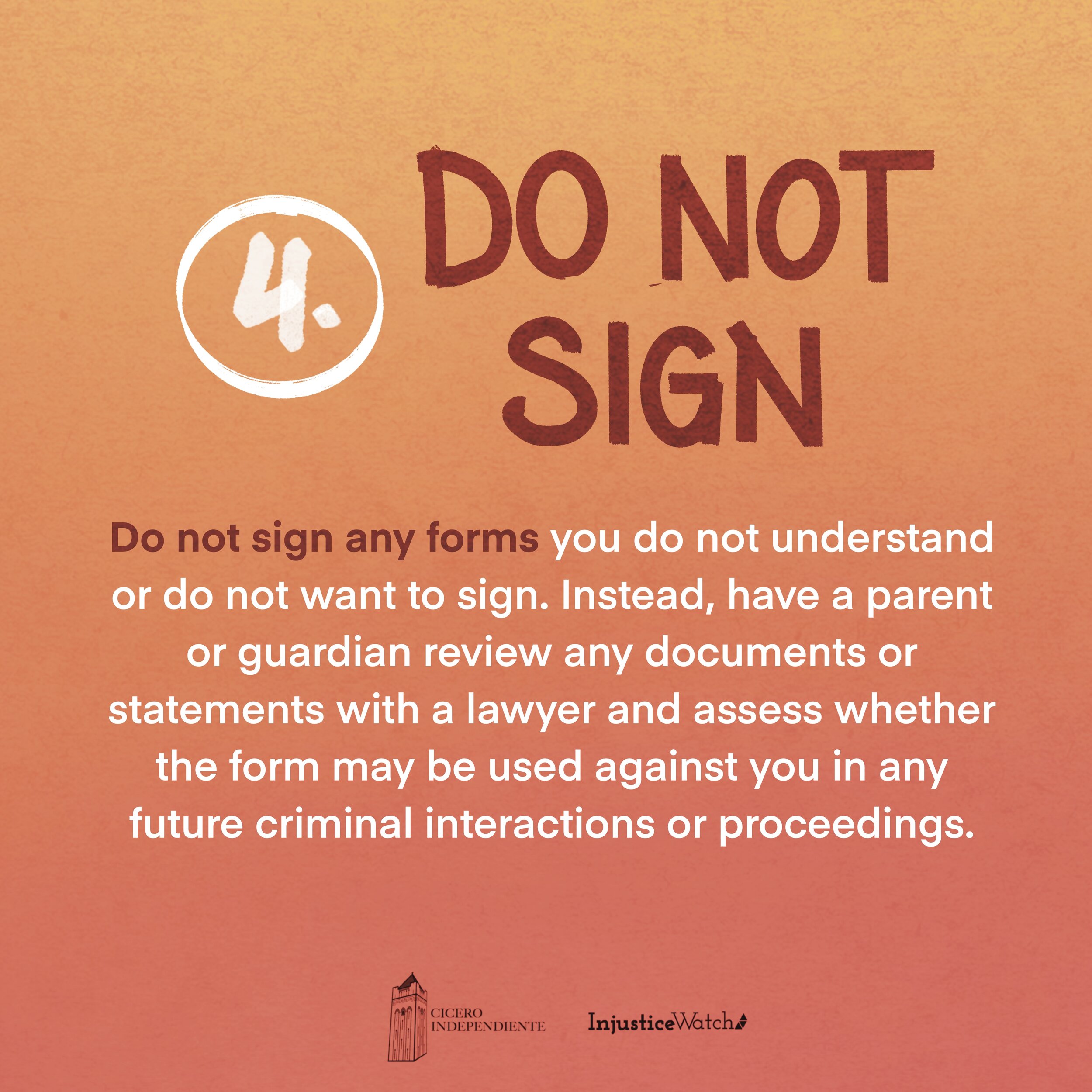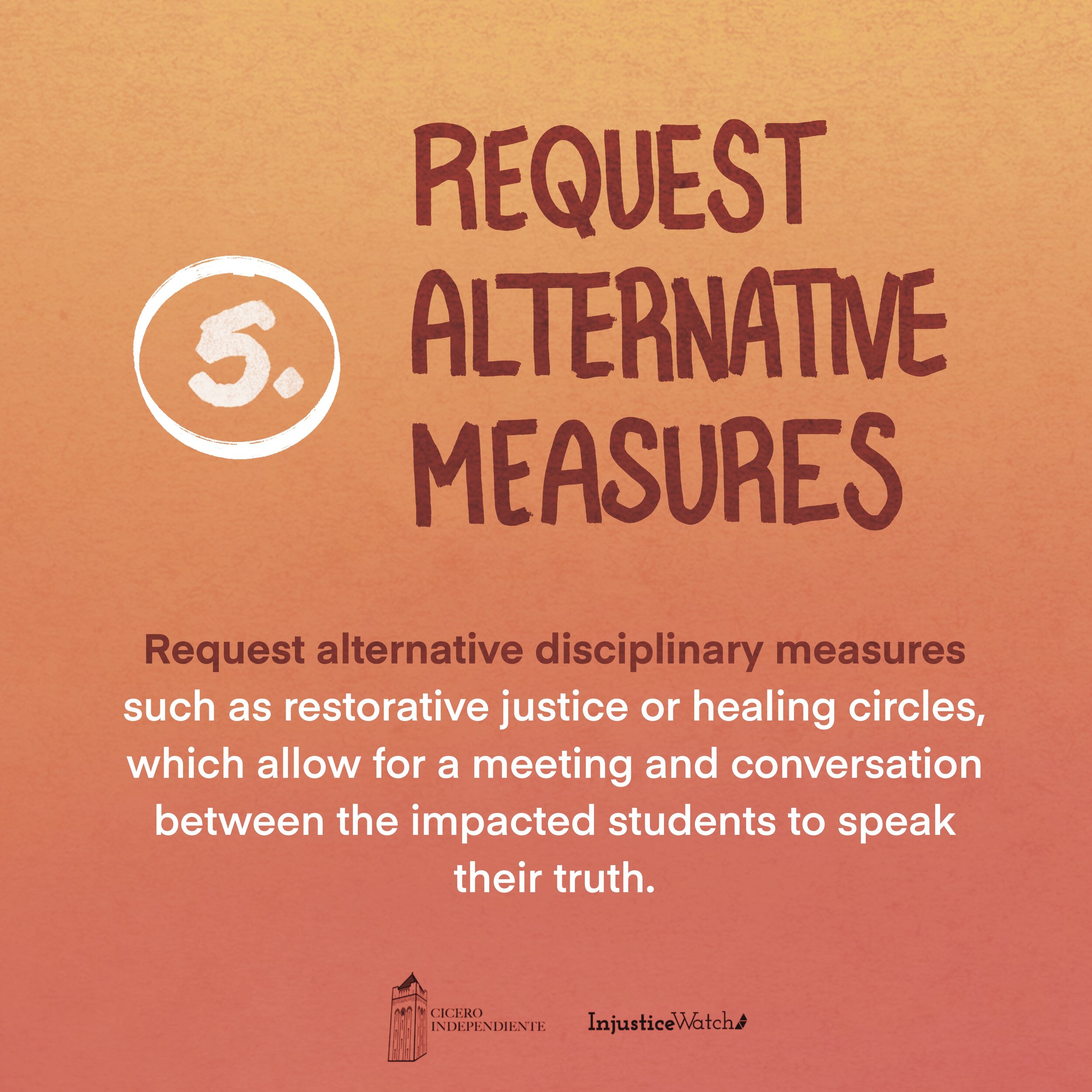Know Your Rights: What to Do if You're a Student Facing School Discipline
Illustration by Veronica Martínez
By Rita Oceguera
School discipline can impact students beyond the classroom, especially when students face disciplinary action for alleged behavior that may be considered criminal or involve law enforcement.
A recent investigation by Cicero Independiente, Injustice Watch, and Type Investigations found more than 100 high school students in the Chicago suburbs of Cicero and Berwyn have signed a form called a gang contract, often for murky or seemingly subjective reasons. We also found evidence that school officials share information from the contracts with cops.
Our investigation illustrates the risk youth face of being criminalized after they get in trouble at school—and why experts say it’s important for parents and students to know their rights. Here’s some advice from Julian Johnson, a Chicago civil rights attorney, about how students can navigate these intimidating situations. Click here to download a PDF version.
Assert your right to remain silent. Remember: anything you say can be used against you. Do not speak to a school official or law enforcement official without a parent, guardian, or lawyer.
When a parent or guardian arrives at the school to meet with school administrators, encourage them to ask questions. If administrators request that a document be signed, parents and guardians should ask concrete questions: What is the document’s purpose? Who can access it? Where will it be stored? How will it be enforced?
If a parent or guardian feels uneasy with the process or unsure how a decision may affect your future, have them request a lawyer be present before going further. Even if the parent or guardian does not have access to a lawyer, it signals to the school administrator and any law enforcement present that the conversation must stop before moving forward, allowing time for a parent or guardian to make an informed decision.
Do not sign any forms you do not understand or do not want to sign. Instead, have a parent or guardian review any documents or statements with a lawyer and assess whether the form may be used against you in any future criminal interactions or proceedings.
Request alternative disciplinary measures such as restorative justice or healing circles, which allow for a meeting and conversation between the impacted students to speak their truth.
Rita Ocequera is a reporter at Injustice Watch. This article was produced in partnership with Report for America.
Want to read more stories like this? Consider making a donation to support our work. Your money goes directly towards paying journalists of color to report on local news.
Subscribe
Bringing you news from the 60804
We respect your privacy and will only use your information to send you our latest posts.

